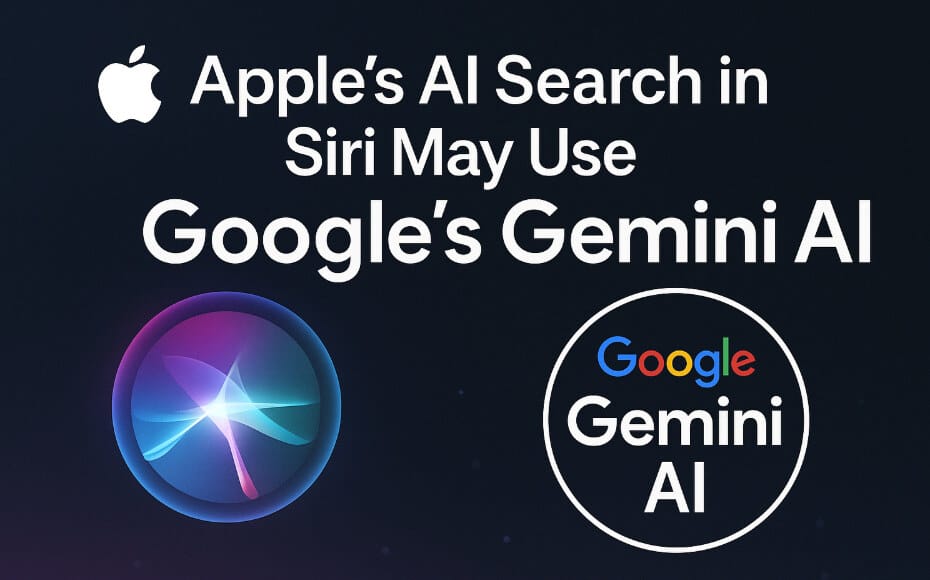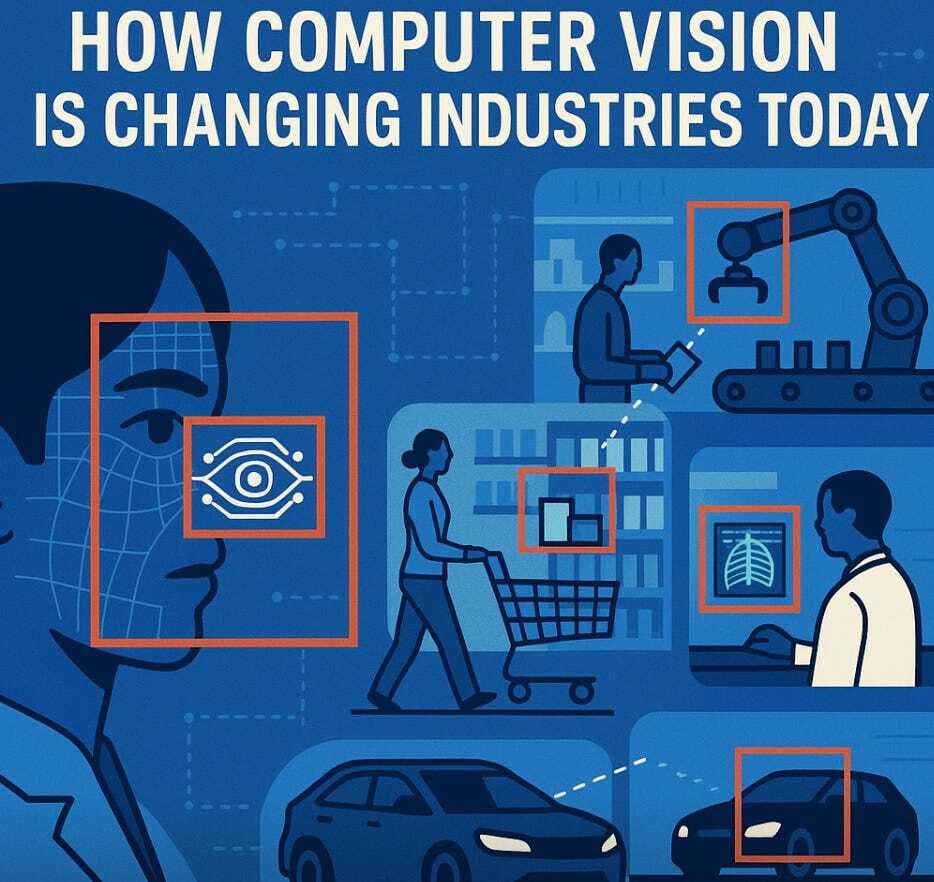- Yaro on AI and Tech Trends
- Posts
- 🌞How Trump’s Policies Are Supercharging China’s Clean Energy Dominance
🌞How Trump’s Policies Are Supercharging China’s Clean Energy Dominance
Plus: Apple’s AI Search in Siri May Use Google’s Gemini AI
Get in Front of 50k Tech Leaders: Grow With Us
Apple is under pressure to reinvent Siri and fully embrace AI across its devices. Google, a longtime partner, may end up powering Siri’s new AI search via its Gemini model, but the upgrades likely won’t arrive until next year. Meanwhile, computer vision is quietly transforming industries from retail to healthcare, and China is extending its global dominance in clean energy with staggering numbers. Let’s dive in and stay curious.
Apple’s AI Search in Siri May Use Google’s Gemini AI
AI Tools - Jobs
How Computer Vision Is Changing Industries Today
AI Guides - Our World in Data
How Trump’s Policies Are Supercharging China’s Clean Energy Dominance
📰 AI News and Trends
Mistral AI is finalizing a €2 billion investment that will boost its valuation to $14 billion
xAI has seen many high-profile departures in recent weeks. Mike Liberatore, their CFO, left in July. Robert Keele, xAI's general counsel, announced his departure on August 7, among many others
OpenAI is allowing current and former employees to sell more than $10 billion worth of stock in a secondary share sale
A new AI manifesto by Palantir challenges the narrative that AI will make humans obsolete. Instead of replacing workers, it argues that AI should empower them
🌐 Other Tech news
MrBeast is launching his own phone company, a mobile virtual network operator similar to Ryan Reynolds’ Mint Mobile
India’s chip industry is gaining momentum. Years of investment are starting to pay off. But can it strike deals with overseas chip giants too?
TikTok rival Xiaohongshu, hits a $30Billion valuation in just 3 months
Your Boss Will Think You’re an Ecom Genius
If you’re optimizing for growth, you need ecomm tactics that actually work. Not mushy strategies.
Go-to-Millions is the ecommerce growth newsletter from Ari Murray, packed with tactical insights, smart creative, and marketing that drives revenue.
Every issue is built for operators: clear, punchy, and grounded in what’s working, from product strategy to paid media to conversion lifts.
Subscribe for free and get your next growth unlock delivered weekly.
Apple’s AI Search in Siri May Use Google’s Gemini AI

Apple is developing a new AI-powered search tool for Siri called “World Knowledge Answers”, which could rely on Google’s Gemini AI model to summarize web content. The feature would deliver AI-generated summaries combining text, images, videos, and points of interest, aiming to compete with tools like Perplexity and OpenAI’s search features.
As of now, Google is leading discussions to power the AI search via a custom Gemini model on Apple servers, but they are also talking with Anthropic and others to boost Siri. The problem is that Anthropic wants north of $1.5 billion, and Google is a long-time partner of Apple, and the finances may work out better and faster for the iPhone maker. A lot of things could change between now and the Launch, which is expected with iOS 26.4 in March 2026, not alongside the iPhone 17 debut.
🧰 AI Tool
Jobs
Kickresume - Specializes in AI‑powered resume building with 40+ HR‑approved templates, LinkedIn import, and ATS-friendly optimization. Helps you create polished resumes and even turn them into personal websites.
JobCopilot - Uses AI to match you with relevant roles and can autofill and submit up to 50 applications per day
InterviewPal - Great for AI‑generated cover letters and interview prep. Offers feedback and tailored advice based on real interview patterns.
Teal - Combines resume builder, AI keyword suggestions, and a powerful application tracker with a Chrome extension to manage job listings seamlessly.
HiringCafe - Crawls over 100,000 employer career pages, provides AI-powered filtering (including remote policy, visa terms), and strips away reposted listings.
Download our list of 1000+ Tools for free.
How Computer Vision Is Changing Industries Today

Computer vision is a field of artificial intelligence that enables machines to "see," interpret, and analyze visual data from images and videos. By using deep learning and neural networks, computer vision systems can replicate human sight and make data-driven decisions much faster and more accurately than a human can.
Computer vision is already revolutionizing numerous industries by automating visual tasks, enhancing safety, and providing powerful new insights.
Manufacturing and Quality Control: Computer vision is being used to automate quality inspections on assembly lines. Systems can rapidly scan products to detect minute defects, scratches, or flaws that might be invisible to the human eye. This reduces waste, improves efficiency, and ensures that only high-quality products are shipped.
Healthcare: In medical imaging, AI-powered systems can analyze X-rays, CT scans, and MRIs to help doctors detect diseases like cancer or identify fractures with a high degree of precision. It can also be used in patient monitoring to track health with video systems.
Retail and E-commerce: In physical stores, computer vision tracks customer behavior to provide insights into shopping patterns, popular areas, and queue management. This technology is also enabling cashier-less stores, where customers can simply pick up items and walk out.
Automotive: Computer vision is the core technology behind autonomous vehicles and advanced driver-assistance systems (ADAS). It allows cars to detect and classify pedestrians, road signs, traffic lights, and other vehicles in real time to navigate safely.
Agriculture: Farmers are using computer vision with drones to monitor crop health, identify diseases, and predict yields. Autonomous robots can also use this technology for tasks like weeding and harvesting, which helps optimize resource use and reduce labor costs.
Security and Surveillance: In security, computer vision is used for real-time monitoring to detect suspicious activities and for facial recognition to provide secure access or identify individuals.
What to Expect in the Coming Years
The computer vision market is projected to grow significantly, with one report estimating it will reach over $58 billion by 2030. This growth will be driven by several key trends and technological advancements.
Edge Computing: More computer vision processing will happen locally on devices (like a car or a drone) rather than in the cloud. This will reduce latency, enable real-time applications, and improve data privacy.
Generative AI: The combination of generative AI and computer vision will lead to hyper-realistic synthetic data generation. This will allow companies to create vast datasets for training AI models, reducing the need for expensive and time-consuming manual data collection and labeling.
Multimodal AI: Future AI systems will not only "see" but also "hear" and "read," enabling them to process and understand information from multiple sources (visual, text, and audio) in a more human-like way.
3D Vision and Spatial Intelligence: The ability of machines to understand and interact with the world in three dimensions will become more common, revolutionizing fields like robotics, augmented reality, and industrial automation.
Ethical and Regulatory Focus: As computer vision becomes more widespread, especially in public spaces for tasks like facial recognition, there will be a growing emphasis on ethical development and clear regulations to address concerns about privacy, bias, and security.
We can expect computer vision to become faster, more intelligent, and more deeply integrated into our daily lives, transforming how we work, travel, and interact with the world around us.
These are some of the Specialized Companies in the Computer Vision space.
Cognex Corporation (CGNX)
Keyence Corporation
Basler AG
SenseTime
Prominent Startups and Innovators
Roboflow
Tractable
Matterport
Metropolis Technologies
🧰 AI Guides
Our World in Data - Centralized, freely accessible portal created by the non‑profit Global Change Data Lab (in collaboration with Oxford researchers). It lets users search and browse a vast collection of charts and datasets across topics like AI, health, environment, economy, technology, and more.
Explore our AI Guides — from coding to photography and beyond, find step-by-step tips to put AI to work for you.
How Trump’s Policies Are Supercharging China’s Clean Energy Dominance

While China races ahead in clean energy, the U.S. is actively falling behind, and former President Trump’s policies are making it worse.
Takeaways:
China exported $40B in solar panels in 2024. Lots of them are going to Africa, where many nations are looking to achieve Energy independence. The U.S.? Just $69 million.
Trump’s rollback of clean energy subsidies (from the Inflation Reduction Act) and cuts to science funding are gutting American competitiveness. Additionally, cuts in research and the war on higher education may make the future even more difficult for US companies as they can hire enough engineers.
Federal support for cleantech that uses Chinese materials has been cut off, making many U.S. projects unviable.
China dominates in clean energy hardware:
Nearly 3x more wind turbines
Over 2x the solar power output
Home to 5 of the world’s top 10 EV makers
Controls the battery supply chain
Scientists are pushing back on Trump’s climate misinformation, including a 459-page rebuttal to the EPA’s attempt to rescind regulations based on cherry-picked data.
Without long-term U.S. investment in R&D and cleantech, entrepreneurs are taking innovation abroad, and the U.S. risks ceding not just market share, but geopolitical influence.


Reply